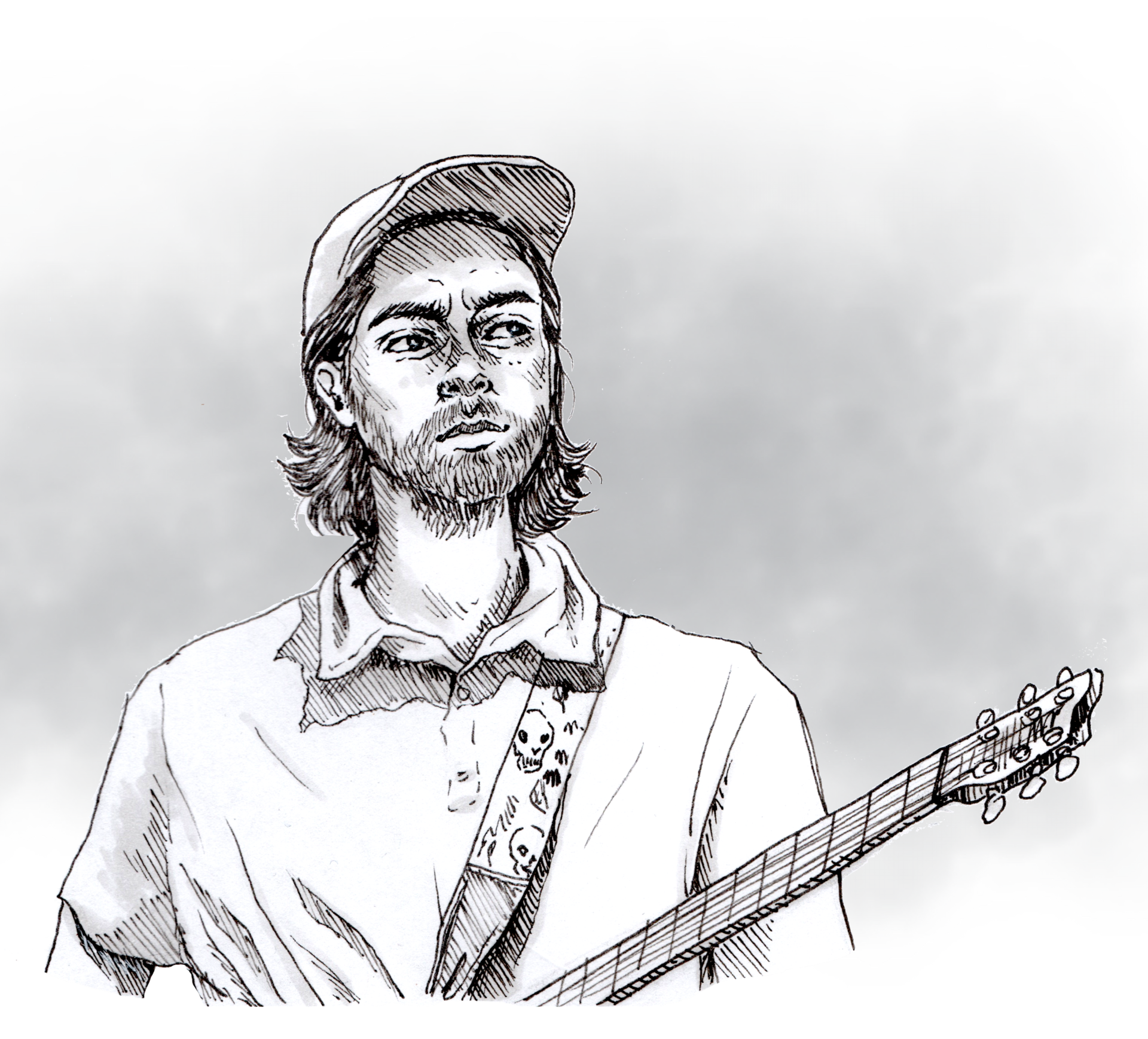
Any mention of (Sandy) Alex G is accompanied by jealousy. For those of us who have known the musician before the extraneous “(Sandy)” was added to his name, we scoff at those that opt to use the parenthetical when discussing our favorite indie superstar. Those that have stumbled upon his discography more recently will hide this knowledge at all costs, refuting every “What have you been listening to recently?” with a benign off-hand remark to distract from the topic at hand. The point is that anyone familiar in the slightest with Alex G understands that his music must be carefully archived and sealed off from the hands of the general public. Beyond writing profoundly intimate lyrics, the sparse, fractured and introspective quality of his music implies that only a select worthy few have earned the right to listen. Fans covetously fear that his music will eventually devolve to commonplace standing as if that would cause his sound to lose the essential components that render it extraordinary.
What causes this paranoia beyond an attempt to maintain a musical superiority complex? Look at his most recent performance in Portland at the Wonder Ballroom on Nov. 1. The crowd was formidable. Its size alone should have been sufficient to inspire fear in the hearts of any zealots who worry that more publicity could trigger a spike in Alex G’s popularity. I have seen him live in previous instances, and the crowds have always been somewhat lackluster. I was afraid that those attending this performance would embody the same dismissive arrogance that seems to be a requirement for anyone attending an indie show. However, the atmosphere was surprisingly inviting. Everyone seemed to have accepted that Alex G has not yet reached the zenith of his popularity and that they themselves were helpless to thwart his upward trajectory.
Alex G opened with some of his newer songs such as “Gretel” and “Southern Sky,” both tracks from his newest album “House of Sugar,” much to the crowd’s enthusiasm. The energy was always lively even when he opted to play slower tracks like “Bobby.” As the concert progressed, all covetous notions dissipated. Everyone was content to acknowledge the fact that Alex G’s popularity was something that could not be contained to themselves any longer. If nothing else, their attendance at the event sparked this realization. You cannot condemn an artist for becoming popular if you aid in that very process.
“Brick” among other tracks provoked the crowd into a friendly mosh that was, admittedly, surprising even to those that started it. Listening to “Rocket” in bed is a much different experience than listening to it in a public setting, which may explain the unpredictable actions of the crowd that night. Moshing, in its purest form, can be considered a form of catharsis, and this definition accords with the inviting dancing that pervaded the concert. And of course there were ample moments of reprieve that allowed each individual to appreciate the time, place and situation. Alex G pulled from most of his discography throughout the performance, often surprising audience members by playing older songs immediately after newer ones.
The only element of the performance that may be considered off-putting by some was Alex G’s inebriated state. He sipped from a red cup throughout the songs and looked more and more disheveled as the night progressed. The quality of the music remained constant except for when he forgot the words to “Sandy,” and a fan had to remind him of the correct lyrics. Some pitied this behavior, thinking that Alex G’s rise to prominence contributed to the classic mental shift that occurs within popular musicians. In other words, they thought that Alex G considered himself to be of such high status that he could get drunk at his own concert and get away with it. Others related to his drinking. Instead of claiming that this was a sign of his decline, they felt that it was just his way of having fun alongside the crowd. Certainly both of these have elements of truth.
Despite the unpredictable nature of the concert, Alex G’s decision to conclude the encore with “Change” proved effective. Repeating the ending lines of the song “I don’t like how things change,” Alex G mustered all that was left of his strength to deliver this final mantra. Its placement at the conclusion of the event should be apparent. Even while he was playing it, everyone could not help but acknowledge that the concert had already ended. They would be herded like sheep outside the venue where they would smoke cigarettes while waiting for rides. The cold would be refreshing just for a moment, but the intense social heat that occupied the Wonder Ballroom would quickly become the object of their desire. Nostalgia would manifest itself instantly. But perhaps this was the nicest way that Alex G could have ended his performance: by giving a heads-up of what was to come and signifying the end of a spellbinding night in the process. If this implies anything about his future discography, we should not be afraid. If “House of Sugar” is that heads-up, we should not be afraid of what is to come.
Subscribe to the Mossy Log Newsletter
Stay up to date with the goings-on at Lewis & Clark! Get the top stories or your favorite section delivered to your inbox whenever we release a new issue.

Leave a Reply